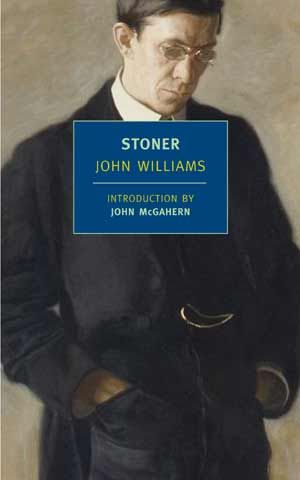He said slowly, “You must remember what you are and what you have chosen to become, and the significance of what you are doing.”
So states the outgoing message on my answering machine,
reminding close friends and acquaintances that whatever it is can probably wait
till next time. I’m kidding, but that’s not a bad idea… And as you probably can
tell, I’m in the mood, rather, I feel a sense of urgency to get to the heart of
the matter: John William’s novel Stoner,
though not about getting high a lot, is dangerously good.
It is a story about callings, unforeseeable necessities, the
nature of the positively unspeakable, and the solace, ultimately, of that which
we want most to share, to spread and, in all likelihood, corroborate, which begins
at a University of Missouri not exactly on the brink of World War 1. William
Stoner is a student here, away for the first time from the outskirts of
Columbia where he was and is, in a way, unknowingly
expected to continue working on his family’s farm during and after graduation. He
doesn’t, but instead completes his bachelor’s and graduate degrees in English
Literature, guided by the only voice that he can hear, the voice of a decision
having been made all along; assured, and glad, and awkwardly familiar, as if
part of his whole being in the world was waiting in the wings, or turned up
like a $20 bill inside a jacket. Except, you know, replace $20 bill with
something revelatory and fundamental about identity and spirituality.
Yet while his character contains and quietly portends the
seemingly requisite mystery of anyone worth getting to know, it’s William’s language
(Yes, the author, not the character. No, I didn’t put that quote up on my
answering machine) like that of the aforementioned answering machine message that,
like looking into someone else’s eyes, says it all, in terms of coordinating
our introduction and uncommonly immediate reception of a character just getting
to know and empathize within himself. The satisfaction and immersion I imagine
it’s as painful not to feel for William Stoner as it is to write a word, much
less a sentence for the unnamable choices we are destined inexplicably to make
as well as those we’re destined inexplicably to live with, without memory of
making, come to here not in the form of fast relief or entertainment but reassurance slowly telling us to take a seat and stock of what we alter by the
very fact of our dependence on it, not by running from ourselves, but in doing
what we love, even when that action is provisional by name. Perhaps because, like students, said aspect of
education—getting to know “us” and the experience thereof—never takes
unmediated shape. And there’s no better time than fall, ironically (or maybe
just uncertainly) to step inside the shoes of a beginner.


No comments:
Post a Comment